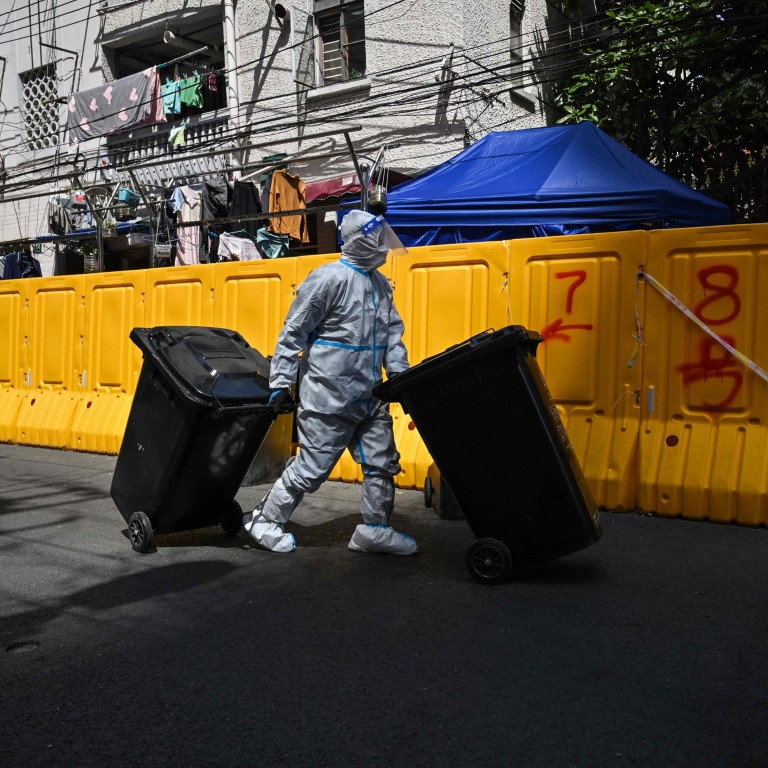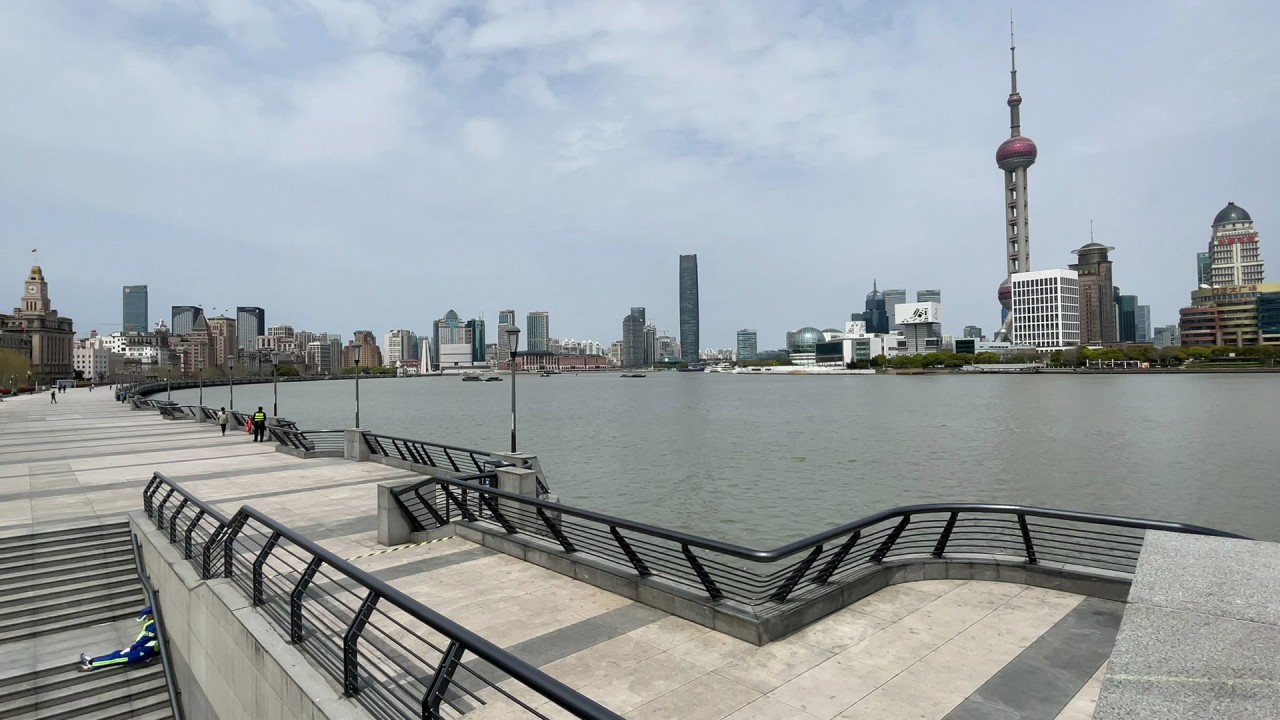
Coronavirus China: expats in Shanghai ‘stunned’ as lockdown sends ‘floods’ of people scrambling for supplies
- Foreign residents in Shanghai were caught off guard after authorities announced a large-scale lockdown to contain a growing coronavirus outbreak on Sunday
- China is sticking to its zero-Covid policy and expats in the financial hub have mixed views on the hardline strategy, with some saying it is ‘not sustainable’
Foreign residents in Shanghai have described supermarkets “flooded with people” and a sense of growing frustration after authorities in the financial hub abruptly announced a large-scale lockdown to contain a coronavirus outbreak.
Late on Sunday, Shanghai authorities ordered a snap lockdown covering different parts of the city across eight days, catching many expats off guard.
“We were allowed by the compound managers to go out late that night to buy food,” said Cameron Wilson, a communications professional from Britain who has lived in Shanghai for more than 10 years.
All the supermarkets I visit are flooded with people, food is being grabbed and even fought for
“The part of Shanghai where I live is normally very quiet. It’s really stunning to see so many people on the streets close to midnight to shop. It was very bizarre.”
Before the latest lockdown, Wilson had been forced to work from home for a week after a Covid-19 case was reported in his compound – something he said was “a complete waste of time” after the government decision on Sunday.
“All the supermarkets I visit are flooded with people, food is being grabbed and even fought for,” the 28 year old said. “There isn’t much left and it’s a concern as I went into early lockdown this morning. I’m becoming anxious to see if I can go this long with negligible nutrition.”
The Omicron wave is yet to peak in the city. Shanghai reported more than 4,400 infections on Tuesday – most of which were asymptomatic – and more than 10,000 cases in the past week, with 9,900 of them asymptomatic.
Simon Le Penhuizic, a 29-year-old from France who lives in Puxi, still has a few days to prepare for the lockdown, but worried that might not be enough time.
“Online delivery apps are almost impossible to use now, due to the demand,” he said. “I connected at 6.45am today and I was too early for Hema [a grocery franchise], I reconnected at 7.04am [but] it was already too late.”
China’s zero-Covid strategy pushes local government finances to the brink
Though the strategy worked early in the pandemic, it remains to be seen how effective it will be in eliminating the highly-transmissible Omicron variant. Foreigners in Shanghai had mixed views on the hardline policy.
American Cameron Johnson, 42, said the lockdown was “the only way to stop the system from being overwhelmed”.
Le Penhuizic said locking down the city gives authorities time to “protect the most sensitive people”, but efforts to boost vaccinations – especially among at-risk groups like the elderly – must be accelerated.
The problem is they don’t seem to have a plan to transition from zero-Covid to living with the virus
Wilson, however, is among the many expats who are growing more frustrated at China’s never-ending restrictions and are concerned Beijing’s zero-Covid strategy is ‘not sustainable’.
“The problem is they don’t seem to have a plan to transition from zero-Covid to living with the virus,” he said. “And it doesn’t matter what measures you take or how strict you are or how many people you punish for not following the regulations.
“Omicron is very transmissible and there’s just nothing you can do other than make a plan to live with the virus. And as long as they don’t do this, this will happen again and again. So maybe they can get it back under control this time, but then what?”
Khalid said she has grown more despondent with the “policies constantly changing”, but she has learned to live with it.
Meanwhile, universities across China have entered a closed-loop situation where students can walk freely around campus, but classes are entirely online and students cannot leave the grounds.
Hayk Geghamyan, a student at Fudan University in Shanghai, arrived to finish his final semester earlier this month after being stuck in Armenia for the past two years. But his delight was short-lived; one week after finishing quarantine the city went into lockdown.
“We are kind of the most lucky and unlucky international students now,” said Geghamyan, who studies international politics.
“We are really happy that we could finally make it to China as two years of online classes was way too much to bear.”
But he added the current predicament made him feel strange.
“After finishing my quarantine, and being out I knew that China is the safest place Covid-wise on the earth,” he said. “At the same time, I could feel the presence of [the virus] here more than anywhere else. It was a bit depressing at the beginning but I have got used to it.”


